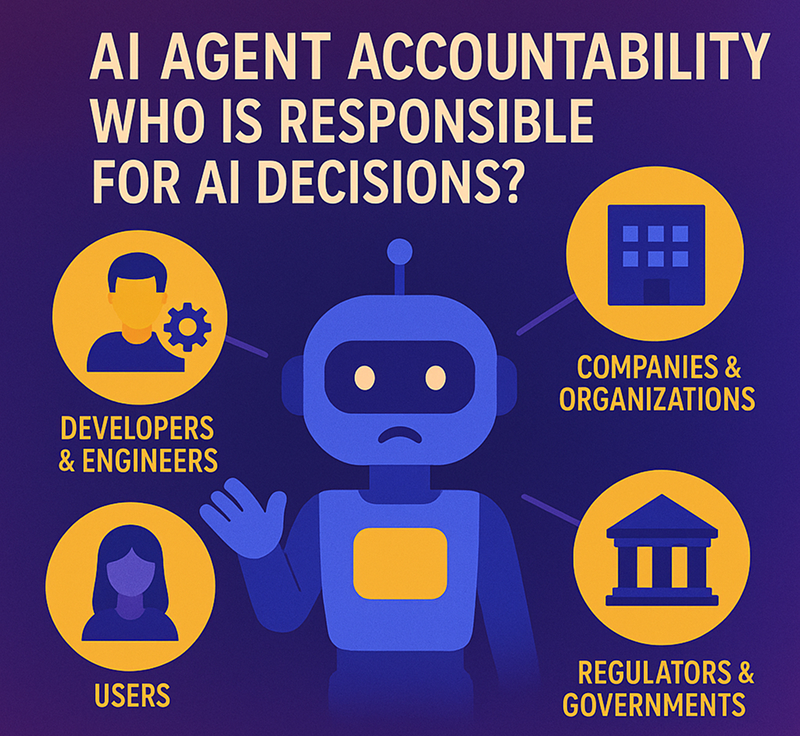AI Agent Accountability: Who Is Responsible for AI Decisions?
This question is one of the biggest debates in AI ethics.
AI agents are being increasingly used in almost every domain to complete tasks accurately and without any manual intervention. However, when it comes to accountability, it has to be clear that who is responsible for the decisions taken. Everyone will try to escape by blaming others – the developers might say that they have not trained the models to behave in a wrong way. At the same time, the AI models might say that they have done what exactly they have been told to do.
In this blog, we will see some points on this.
Role-based AI Responsibilities
Developers & Engineers
The people who design and train AI models are responsible for ensuring they function correctly and ethically through proper mapping.
Companies & Organizations
Enterprise-level policies have to be framed to ensure the system understands how, why, and when to make use of the data available. Systems must ensure they are used responsibly and comply with regulations
Users
Clear usage guidelines must be served to everyone relying upon the AI systems as part of responsible data management. Since users are the key shareholders who will be impacted by the decisions so they should be very careful while applying them. User should think of
- What data was consumed
- What was the source of data
- Were sufficient data provided to agent
Regulators & Governments
Laws and policies help define accountability and set ethical guidelines for AI use.
The following points should be considered while using AI Agents.
Preparing the Data
Training an AI model follows a WYSIWYG (What You See Is What You Get) approach based on the results and ethics.
Training the Model
After the model has been provided with all the necessary data, it has to be validated against the same to determine the results produced are as desired.
Determining the Impact
How far should an environment rely upon AI agents? Most of the times, it has been observed that such agents replicate humans entirely by not only executing tasks to perfection but also taking crucial decisions when and where needed.
Understanding the Logic
Ideally, AI models operate by taking inputs and generating outputs. However, in certain high-stakes applications—such as finance or law—this black-box approach must be avoided entirely due to the need for transparency and accountability.
Conclusion
We cannot place blame on a single party for any type of loss; all parties must fulfill their responsibilities to ensure that the outcome benefits everyone.
Should you need to learn about on how to train AI agents accurately by following ethics, please write to us at info@techfrolic.com





